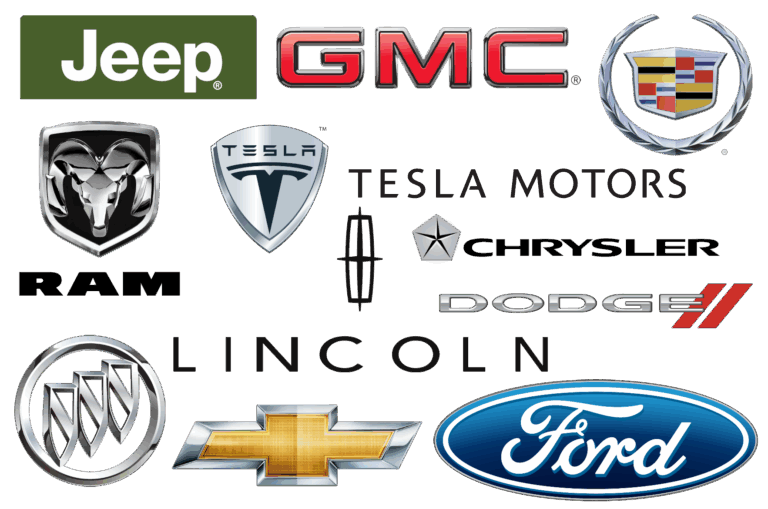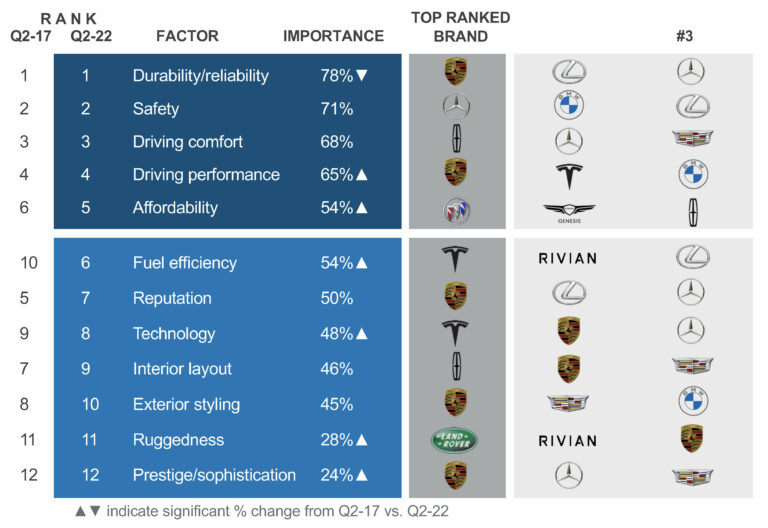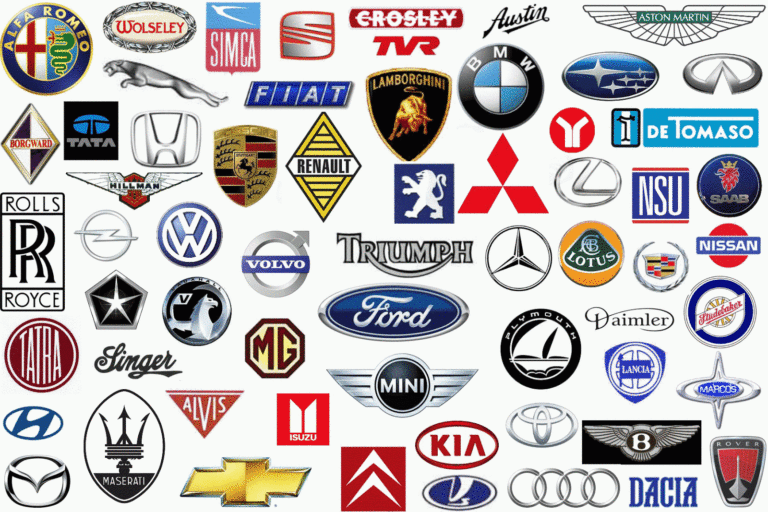American Luxury Car Brands List: A Comprehensive Guide to Domestic Elegance and Power
American Luxury Car Brands List: A Comprehensive Guide to Domestic Elegance and Power cars.truckstrend.com
For decades, American luxury cars have embodied a unique blend of comfort, power, and unapologetic style. They are more than just vehicles; they are rolling statements of aspiration and innovation, reflecting the nation’s spirit of grand design and technological ambition. While the global luxury automotive market is fiercely competitive, dominated by European and Asian powerhouses, American brands have consistently carved out their niche, offering distinct alternatives that prioritize a different kind of prestige.
This comprehensive guide delves into the esteemed list of American luxury car brands, exploring their rich histories, defining characteristics, and the exciting directions they are heading. Whether you’re a long-time admirer, a prospective buyer, or simply curious about the evolution of domestic automotive excellence, understanding these brands provides a fascinating insight into a unique segment of the luxury market.
American Luxury Car Brands List: A Comprehensive Guide to Domestic Elegance and Power
The Pillars of American Luxury: An Overview
When one speaks of American luxury cars, a few names immediately come to mind, rooted in a legacy of pioneering automotive design and engineering. These brands have adapted through economic shifts, technological revolutions, and changing consumer tastes, yet they remain true to a core identity that sets them apart.
Cadillac: The Standard Bearer of American Luxury
History and Heritage: Founded in 1902, Cadillac quickly established itself as "The Standard of the World," a moniker it proudly carried for much of the 20th century. Synonymous with innovation, it introduced electric starters, safety glass, and synchronized transmissions. Cadillac cars were the epitome of grandeur, known for their opulent styling, powerful V8 engines, and plush interiors, often serving as presidential limousines and symbols of success.
Defining Characteristics: Modern Cadillacs continue this legacy with a bold and distinctive "Art and Science" design language, characterized by sharp lines, prominent grilles, and vertical lighting elements. They emphasize a commanding road presence, sophisticated technology, and a focus on driver and passenger comfort. Cadillac has also made significant strides in performance, with its V-Series models offering exhilarating power and handling.
Key Innovations and Models:
- Super Cruise: Cadillac pioneered this advanced hands-free driver assistance technology for compatible highways, offering a glimpse into the future of autonomous driving.
- Escalade: The iconic full-size SUV remains a flagship, known for its massive presence, luxurious cabin, and cutting-edge technology, including a massive curved OLED display.
- CT5-V Blackwing & CT4-V Blackwing: These performance sedans represent the pinnacle of Cadillac’s engineering prowess, featuring potent engines (including a hand-built V8 in the CT5-V Blackwing) and track-ready dynamics, proving American luxury can be thrillingly athletic.
- Lyriq: As Cadillac transitions towards an all-electric future, the Lyriq SUV leads the charge, showcasing futuristic design, sustainable materials, and GM’s Ultium battery platform, redefining what a Cadillac can be.
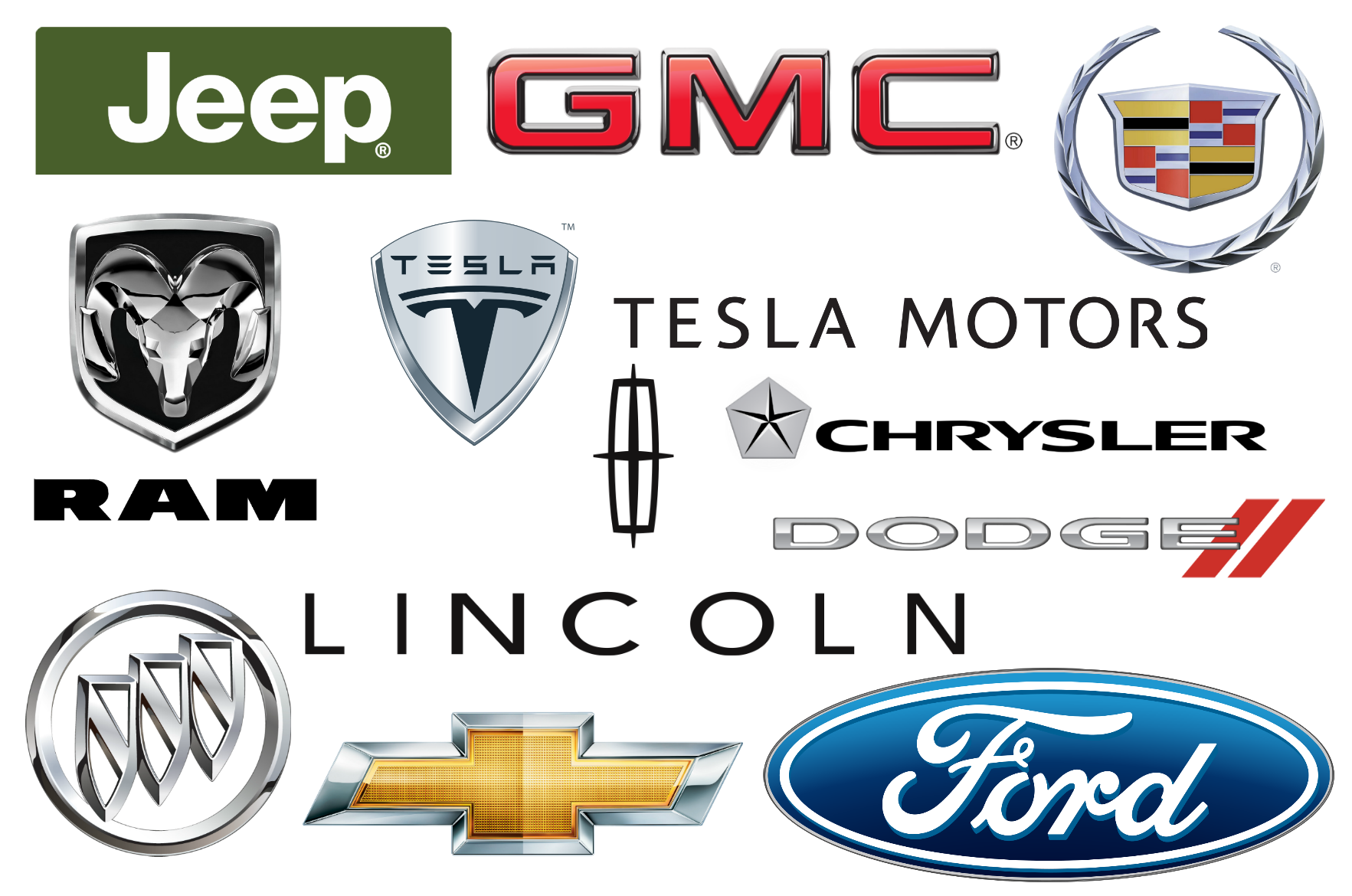
Challenges and Future: Cadillac faces the ongoing challenge of shedding some legacy perceptions while competing with well-entrenched German and Japanese luxury brands. Its strategy involves a strong push into electrification, maintaining its unique design identity, and leveraging advanced technology to appeal to a new generation of luxury buyers.
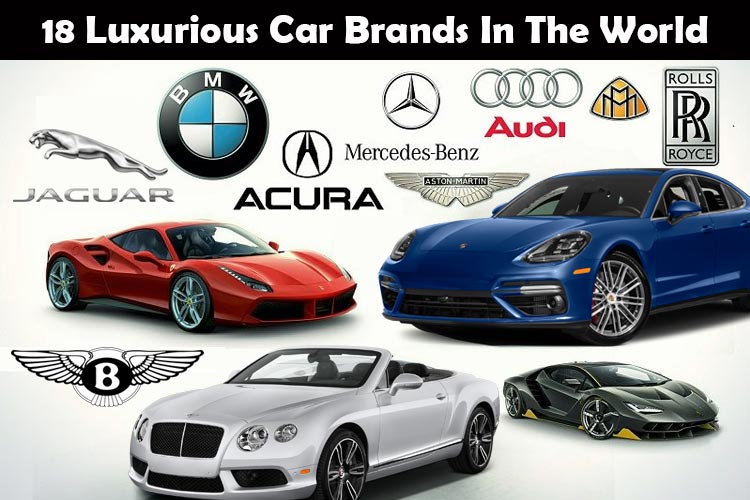
Lincoln: Quiet Luxury and American Elegance
History and Heritage: Established by Henry M. Leland (who also founded Cadillac) in 1917 and acquired by Ford Motor Company in 1922, Lincoln has long been Ford’s premier luxury division. Historically, Lincoln cars were known for their smooth, comfortable rides, elegant styling, and an emphasis on passenger comfort, often chosen by presidents and discerning individuals seeking understated sophistication.
Defining Characteristics: Lincoln has recently embraced a philosophy of "Quiet Flight," focusing on a serene and harmonious driving experience. This translates into elegantly sculpted exteriors, calm and inviting interiors, and a ride quality optimized for tranquility. Lincoln cars prioritize effortless power delivery, intuitive technology, and a sense of calm sanctuary over overt sportiness.
Key Innovations and Models:
- Lincoln Black Label: This exclusive program offers personalized service, premium interior themes with unique materials, and a host of membership privileges, elevating the ownership experience.
- Navigator: The full-size SUV is Lincoln’s undisputed flagship, a commanding vehicle renowned for its opulent interior, expansive space, and impressive towing capabilities, offering a truly first-class travel experience.
- Aviator: A luxurious mid-size SUV that blends powerful performance (including a Grand Touring PHEV option) with elegant design and a refined cabin, embodying the "Quiet Flight" aesthetic.
- Corsair: The compact SUV brings Lincoln’s signature comfort and design language to a broader audience, also offering a plug-in hybrid variant.
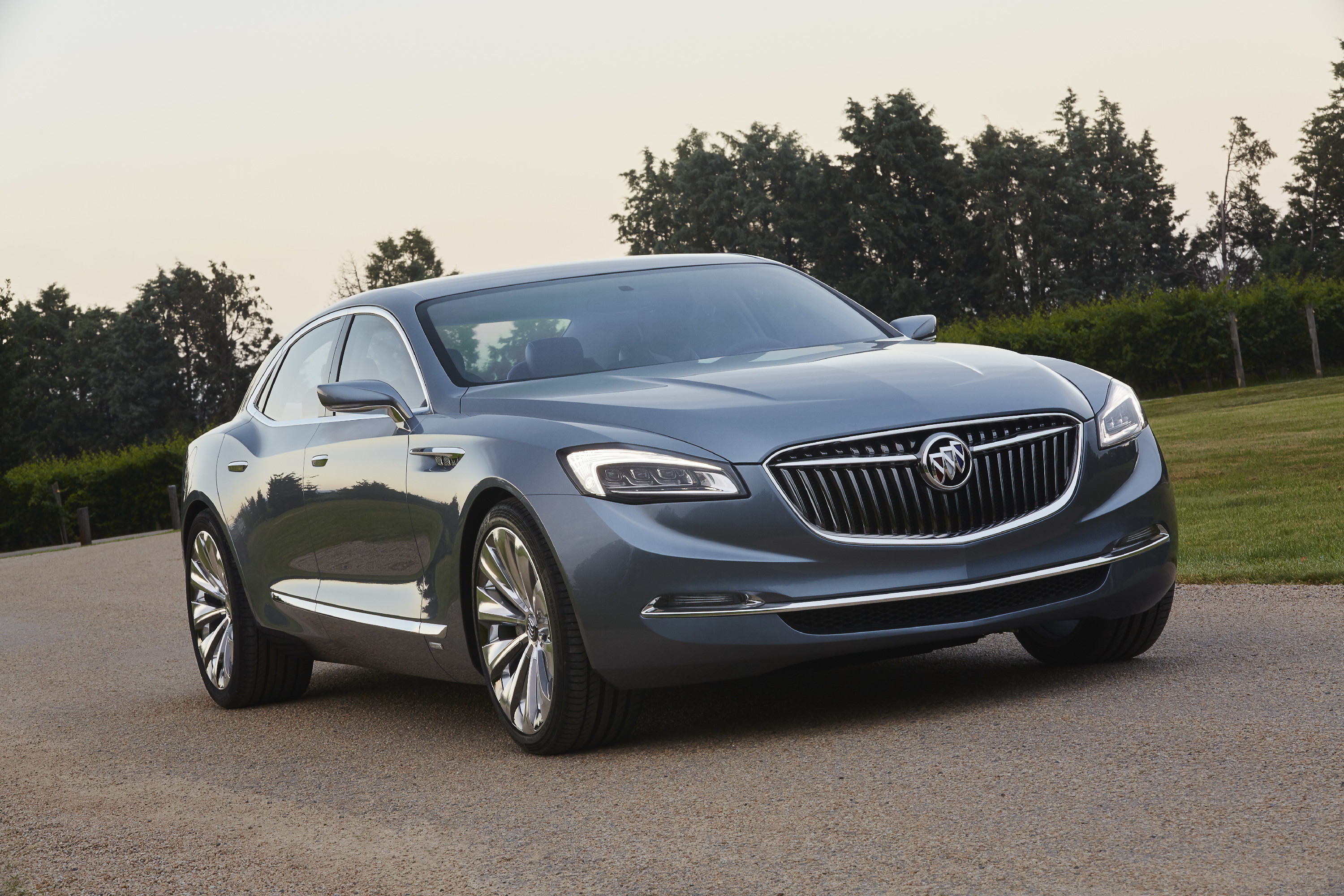
Evolution and Future: Lincoln has largely moved away from traditional sedans, focusing its efforts on a strong lineup of luxurious SUVs. The brand is also committed to electrification, with plans for a fully electric portfolio in the coming years, promising to deliver the brand’s signature quiet luxury in an eco-conscious package.
Tesla: Redefining Luxury for the Digital Age
History and Heritage: While not a traditional luxury brand in the vein of Cadillac or Lincoln with decades of internal combustion engine (ICE) history, Tesla, founded in 2003, undeniably redefined the automotive landscape and, in doing so, carved out a significant segment of the luxury market. Its "luxury" stems from its groundbreaking technology, blistering performance, and commitment to an all-electric future, rather than traditional craftsmanship or heritage.
Defining Characteristics: Tesla vehicles are characterized by their minimalist interior designs, large central touchscreens, rapid acceleration, impressive electric range, and cutting-edge software. The "luxury" comes from the seamless integration of technology, the quiet and powerful electric powertrain, the perceived status of being at the forefront of automotive innovation, and features like over-the-air updates that continuously improve the vehicle.
Key Innovations and Models:
- Autopilot/Full Self-Driving (FSD) Beta: Tesla’s advanced driver-assistance systems are central to its appeal, constantly evolving through software updates.
- Gigafactories and Battery Technology: Tesla’s vertical integration and focus on battery innovation have been crucial to its success and ability to scale EV production.
- Model S: The flagship sedan, known for its long range, incredible acceleration (Plaid variant), and advanced tech, setting the standard for premium EVs.
- Model X: A unique SUV with "falcon wing" doors, offering spaciousness and a blend of performance and utility.
- Model 3 & Model Y: While more mainstream, these models still offer a premium, tech-forward experience, making electric luxury more accessible.
Impact and Perception: Tesla has forced traditional luxury automakers to accelerate their EV development and adopt more tech-centric approaches. While some traditionalists debate if Tesla offers "luxury" in the classic sense (e.g., interior material choices or fit-and-finish historically), its undeniable influence on performance, technology, and sustainability has positioned it as a dominant force in the high-end automotive market.
The Essence of American Luxury: Common Threads and Unique Propositions
Despite their distinct approaches, American luxury brands share several common attributes and offer unique selling propositions:
- Commanding Presence: American luxury cars often exude confidence and boldness, with distinctive styling that stands out on the road.
- Focus on Comfort: Historically, and still largely true today, American luxury prioritizes a plush, comfortable ride, spacious interiors, and intuitive controls, designed for long-distance cruising.
- Powerful Performance: From traditional V8s to instant-torque electric powertrains, American luxury cars deliver ample power, whether for spirited driving or effortless highway merging.
- Advanced Technology: American brands are quick to integrate cutting-edge features, from advanced driver-assistance systems (like Super Cruise and Autopilot) to expansive digital displays and sophisticated infotainment.
- Value Proposition: Often, American luxury vehicles offer a compelling package of features and capabilities for their price point, providing strong value compared to some international rivals.
- Innovation: Whether it’s Cadillac’s Super Cruise, Lincoln’s Black Label experience, or Tesla’s EV leadership, American luxury is often at the forefront of automotive innovation.
The Evolution and Future of American Luxury
American luxury has undergone a dramatic transformation. Gone are the days of land yachts defined solely by size and chrome. Today’s American luxury vehicles are sophisticated, globally competitive machines. The future is undoubtedly electric, with all major American luxury brands committing to significant electrification efforts. This shift not only changes powertrains but also influences design, interior packaging, and the integration of even more advanced digital technologies and autonomous driving capabilities.
Choosing the Right American Luxury Car: Practical Advice
Selecting a luxury vehicle is a personal decision, and American brands offer compelling choices. Here’s some practical advice:
- Define Your Priorities: Are you seeking ultimate comfort (Lincoln)? Cutting-edge technology and performance (Tesla)? Or a blend of bold design, power, and advanced driver aids (Cadillac)?
- Consider Your Lifestyle: An SUV might be ideal for families or those needing cargo space, while a performance sedan might suit an enthusiast.
- Test Drive Extensively: Spend time behind the wheel of your top contenders. Pay attention to ride quality, interior comfort, infotainment usability, and overall driving dynamics.
- Evaluate Technology: Understand the features offered, from driver assistance systems to connectivity, and how they integrate into your daily life.
- Assess Ownership Costs: Beyond the purchase price, consider insurance, maintenance, and potential charging/fuel costs. Electric vehicles often have lower running costs but higher upfront prices.
- Explore Customization: Many luxury brands offer extensive customization options, allowing you to tailor the vehicle to your exact preferences.
American Luxury Car Brands: Key Model and Price Overview
Here’s a table summarizing key information for core models from the major American luxury brands. Prices are approximate starting MSRPs for base models and can vary significantly based on trim levels, options, location, and any incentives or fees.
| Brand | Key Model Example | Body Style | Defining Feature | Representative Starting MSRP (approx.) |
|---|---|---|---|---|
| Cadillac | Escalade | Full-size SUV | Super Cruise, bold design, massive OLED display | $82,000 |
| CT5-V Blackwing | Performance Sedan | Hand-built V8, track-ready performance | $93,000 | |
| Lyriq | Mid-size EV SUV | Ultium Platform, futuristic design, Super Cruise | $58,000 | |
| Lincoln | Navigator | Full-size SUV | Quiet Flight design, serene cabin, Black Label | $84,000 |
| Aviator | Mid-size SUV | Plush ride, elegant interior, advanced safety | $54,000 | |
| Corsair | Compact SUV | Refined comfort, intuitive tech, optional PHEV | $40,000 | |
| Tesla | Model S | Full-size EV Sedan | Long range, rapid acceleration, Autopilot | $75,000 |
| Model X | Full-size EV SUV | Falcon Wing doors, spacious, high-tech | $80,000 | |
| Model Y | Compact EV SUV | Versatility, efficiency, tech-forward | $44,000 |
Note: Prices are subject to change and do not include destination charges, taxes, or options. Always check the manufacturer’s official website for the most current pricing and configurations.
Frequently Asked Questions (FAQ) About American Luxury Cars
Q1: Are American luxury cars as good as their German or Japanese counterparts?
A1: Yes, they are highly competitive. While German brands often emphasize driving dynamics and Japanese brands focus on reliability and refinement, American luxury cars offer a unique blend of bold design, supreme comfort, powerful performance, and cutting-edge technology that stands out. They offer a distinct "American" interpretation of luxury.
Q2: What makes American luxury unique?
A2: American luxury often emphasizes a commanding road presence, a comfortable and spacious ride, powerful engines (historically V8s, now powerful EVs), and an intuitive, tech-forward user experience. There’s also a focus on "experience" and service, particularly with programs like Lincoln Black Label.
Q3: Are American luxury cars reliable?
A3: Reliability across all brands has improved significantly over the years. Modern American luxury vehicles, particularly those from Cadillac and Lincoln (backed by GM and Ford respectively), often score well in consumer reliability surveys and offer comprehensive warranties. Tesla’s reliability perception can be more varied, often related to build quality in early production runs, but software and powertrain reliability are generally high.
Q4: Are American luxury cars expensive to maintain?
A4: Like all luxury vehicles, maintenance costs can be higher than for mainstream cars due to specialized parts, technology, and labor rates. However, they are generally comparable to other premium brands. Electric vehicles (like Teslas and the Cadillac Lyriq) often have lower routine maintenance costs due to fewer moving parts.
Q5: What is the future of American luxury cars?
A5: The future is overwhelmingly electric, digital, and autonomous. All major American luxury brands are investing heavily in EV platforms, advanced driver-assistance systems, and seamless connectivity. Expect more sustainable materials, personalized experiences, and a continued push towards redefining premium mobility.
Q6: Do American luxury brands offer performance vehicles?
A6: Absolutely. Cadillac’s V-Series (especially the Blackwing models) are globally recognized for their high-performance capabilities, rivaling the best from Europe. Tesla’s Plaid models are synonymous with blistering acceleration, setting new benchmarks for EV performance.
Conclusion
The American luxury car market is dynamic, diverse, and steeped in a rich history of innovation. From Cadillac’s century-long pursuit of automotive excellence and Lincoln’s serene "Quiet Flight" philosophy to Tesla’s revolutionary tech-driven approach, these brands offer compelling alternatives in the global luxury landscape. They represent a unique blend of power, comfort, distinct design, and forward-thinking technology. For consumers seeking a vehicle that embodies a sense of grand scale, effortless power, and a uniquely American interpretation of prestige, the options from this list continue to impress and evolve, promising an exciting future for domestic automotive luxury.

